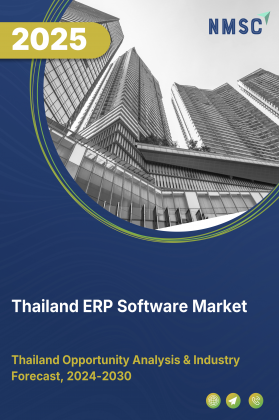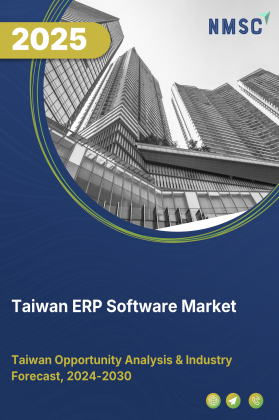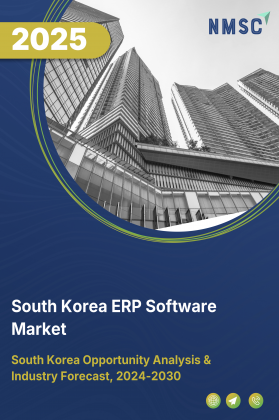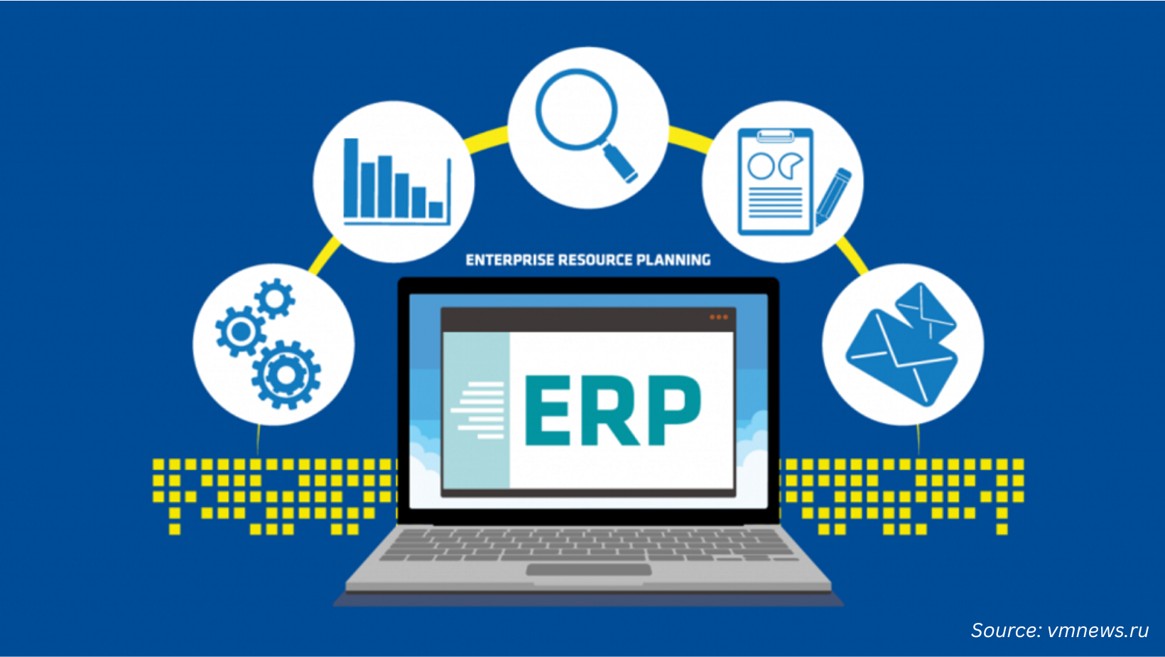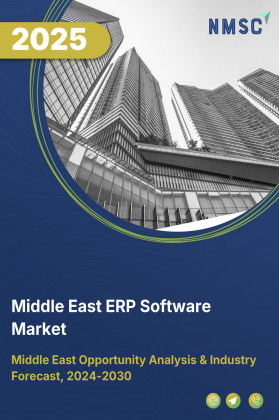
Middle East ERP Software Market by Component (Software, and Services), Deployment (On-Premise, Cloud, and Hybrid), Business Function (Enterprise Asset Management, Financial Management, Human Capital Management, and Others), Application (Manufacturing, BFSI, Healthcare, Retail & Distribution, Government, IT & Telecom, and Others), and End Users (Small & Medium Enterprises, and Large Enterprises) – Trends and Forecast, 2025–2030
Industry: ICT & Media | Publish Date: 17-Oct-2025 | No of Pages: N/A | No. of Tables: N/A | No. of Figures: N/A | Format: PDF | Report Code : IC3614
Industry Outlook
The Middle East ERP Software Market size was valued at USD 1.42 billion in 2024 and is projected to grow to USD 1.80 billion by 2025. Additionally, the industry is expected to continue its growth trajectory, reaching USD 4.26 billion by 2030, with a CAGR of 18.78% from 2025 to 2030.
The Middle East ERP software market is expanding rapidly, driven by the growth of the retail and distribution sector, where businesses increasingly rely on integrated ERP platforms to manage logistics, inventory, and customer engagement. Digital transformation in the banking and financial services sector further fuels this growth, as institutions seek scalable solutions for compliance and operational efficiency. However, challenges persist due to legacy systems, regulatory concerns, and limited localized ERP support, especially in smaller markets. Despite these barriers, the integration of Iot technology with ERP systems is opening new opportunities, enabling real-time data insights and improved operational control across industries like manufacturing and logistics.
Retail and E-Commerce Expansion Accelerates ERP Market Growth
The Middle East holds the second-largest market share and records the fastest growth rate in ERP software market, largely driven by the booming retail and distribution sector. As businesses aim to streamline operations and improve productivity, demand for integrated ERP platforms is surging. In the UAE, the e-commerce market is projected to grow from USD 7.48 billion in 2023 to USD 13.3 billion by 2028, according to the Emirates Agency. This rapid growth underscores the increasing reliance on ERP systems for optimizing supply chain logistics, managing inventories, and enhancing customer engagement, thereby fueling market extension across the region.
Growth in BFSI Sector Digitalization Boosts the ERP Market Expansion
The growing digital transformation within the banking and financial services industry is a key factor in ERP system growth across the Middle East. For instance, Qatar Insurance Company (QIC) reported a 19% increase in net profits to approximately USD 202 million in 2024 and a 39% rise in regional Gross Written Premiums totaling USD 4.8 billion. This growth reflects the sector’s increasing need for ERP systems to manage regulatory compliance, improve operational efficiency, and support scalable digital processes. ERP platforms are becoming essential tools in ensuring resilience and operational agility within the BFSI sector.
Legacy Systems and Regulatory Concerns Hinder ERP Implementation
Despite strong momentum, ERP adoption in the Middle East faces hurdles due to the widespread use of outdated legacy systems. In many countries, concerns around data privacy and varying regulatory compliance slow down modernization efforts. Additionally, the limited availability of localized ERP support in smaller or less developed markets creates implementation challenges. These factors collectively reduce the speed and scale at which ERP systems be adopted across the region.
IoT Integration Delivers Opportunities in the ERP Market
The integration of Internet of Things (IoT) technology with ERP systems is rapidly emerging as a key growth catalyst, offering real-time data visibility and advanced operational control. IoT-enabled ERP platforms empower businesses to track inventory, monitor equipment performance, and anticipate maintenance needs, dramatically improving efficiency in sectors such as manufacturing and logistics. In March 2025, Epicor Software Corporation launched Epicor Kinetic 2025, a next-generation ERP solution featuring advanced IoT capabilities for real-time monitoring and predictive maintenance in manufacturing environments. This innovation showcases the transformative potential of IoT in expanding ERP functionalities and underscores the growing market demand for intelligent, connected enterprise solutions.
Competitive Landscape
The market players operating in the Middle East ERP Software industry include SAP SE, Microsoft Corporation, Oracle NetSuite, Sage Group plc, Priority Software, Ramco Systems, Epicor Software Corporation, Deltek, Inc., Odoo, Ortez, Tricor Group, Infor, Rockwell Automation, IFS, MATIYAS and others.
Middle East ERP Software Market Key Segments
By Component
-
Software
-
Service
By Deployment
-
On Premise
-
Cloud
-
Hybrid
By Business Function
-
Enterprise Asset Management (EAM)
-
Record Assets (Asset Mgmt)
-
Analytics & BI
-
Disposal of Assets
-
Others
-
-
Financial Management System
-
Core Financials
-
Corporate Performance Mgmt (CPM)
-
Financial Consolidation
-
Others
-
-
Human Capital Management (HCM)
-
Talent Management
-
Administrative HR
-
Workforce Management
-
Others
-
-
Manufacturing and Operations
-
Production Planning and Scheduling Products
-
Production Ops and Control Products
-
Manufacturing Information Mgmt Products
-
Others
-
-
Supply Chain Management (SCM)
-
Inventory management
-
Warehouse management
-
Transportation management
-
Procurement
-
Contract Management
-
-
Others
By Application
-
Manufacturing
-
BFSI
-
Healthcare
-
Retail & Distribution
-
Government
-
IT & Telecom
-
Construction
-
Aerospace Defense
-
Other Industries
By End Users
-
Small and Medium-Sized Enterprise
-
Large Enterprise
By Country
-
Saudi Arabia
-
United Arab Emirates (UAE)
-
Israel
-
Qatar
-
Kuwait
-
Oman
-
Other Countries
Key Players
-
SAP SE
-
Microsoft Corporation
-
Oracle NetSuite
-
Sage Group plc
-
Priority Software
-
Ramco Systems
-
Epicor Software Corporation
-
Deltek, Inc.
-
Odoo
-
Ortez
-
Tricor Group
-
Infor
-
Rockwell Automation
-
IFS
-
MATIYAS
Report Scope and Segmentation
|
Parameters |
Details |
|
Market Size in 2025 |
USD 1.80 Billion |
|
Revenue Forecast in 2030 |
USD 4.26 Billion |
|
Growth Rate |
CAGR of 18.78% from 2025 to 2030 |
|
Analysis Period |
2024–2030 |
|
Base Year Considered |
2024 |
|
Forecast Period |
2025–2030 |
|
Market Size Estimation |
Billion (USD) |
|
Growth Factors |
|
|
Countries Covered |
07 |
|
Companies Profiled |
15 |
|
Market Share |
Available for 10 companies |
|
Customization Scope |
Free customization (equivalent up to 80 working hours of analysts) after purchase. Addition or alteration to country, regional, and segment scope. |
|
Pricing and Purchase Options |
Avail customized purchase options to meet your exact research needs. |

















 Speak to Our Analyst
Speak to Our Analyst



